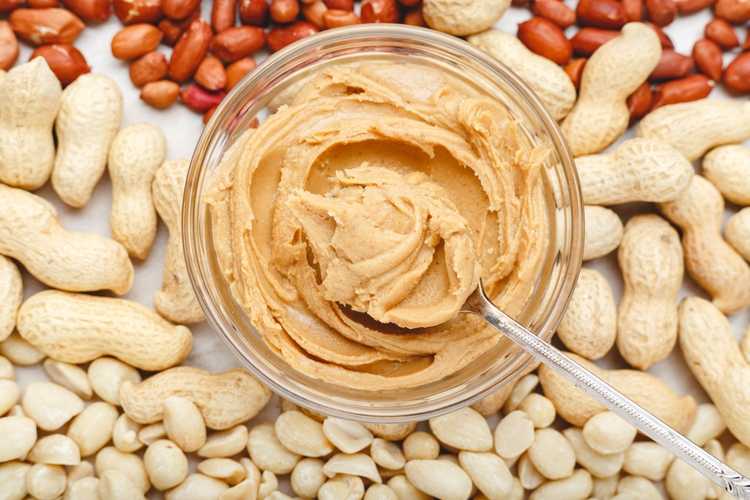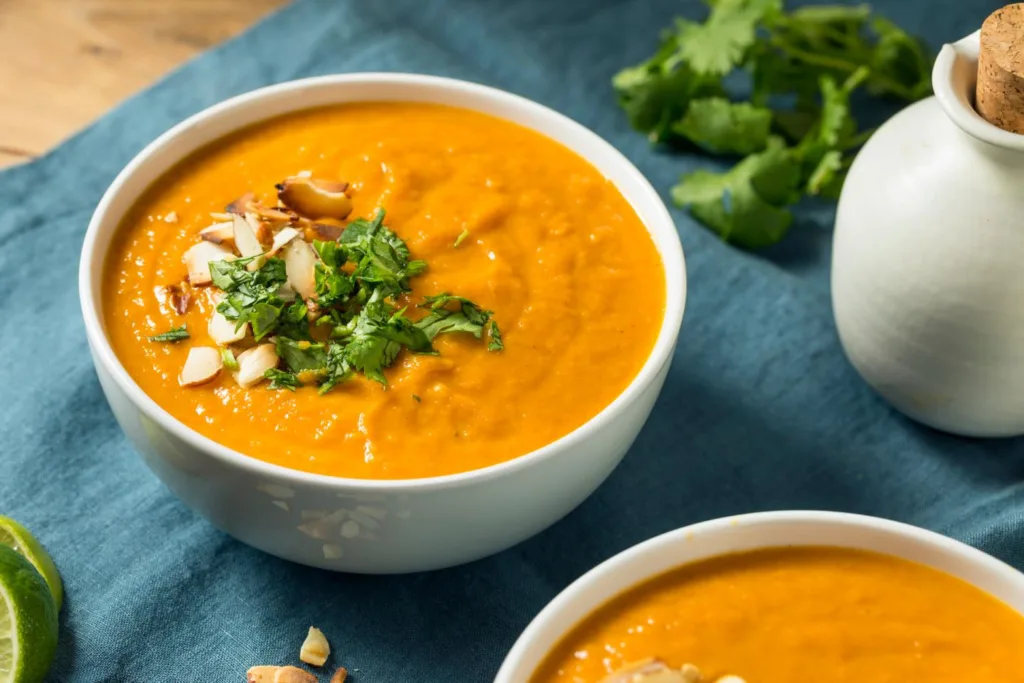Table of Contents
Did you know there is a superfood that is easy to get, looks good, tastes delicious, and is inexpensive? It is zucchini, a vegetable that offers multiple health benefits (1).
Zucchini has a high water content, is low in calories, and is rich in fiber, minerals, and vitamins, especially vitamin C, but does zucchini have vitamin K? What are other health benefits?
In this quick guide, we’ll tell you everything you need to know about this wonderful food.
What is zucchini?
Zucchini is a squash that grows on a vine and has a cylindrical form. They are usually green but can be yellow, white, or striped. Technically, zucchini is a fruit, but most people consider it a vegetable. Zucchini are picked when immature, usually under 8 inches (20 cm). If you let them grow longer, they will become tough and bitter. Zucchini is available year-round, but its flavor is most intense and aromatic in the summer.
Does zucchini have vitamin K? Other nutritional facts
Zucchini, a very versatile vegetable, contains multiple health benefits, one of which is vitamin K, but in moderate amounts, representing 9% of the Reference Daily Intake (RDI) (2). This vitamin plays a fundamental role in health, as it prevents osteoporosis and pathological fractures and strengthens bones by increasing calcium (3). It is also essential for proper blood coagulation, i.e., to prevent bleeding.
In addition to vitamin K, this vegetable is an excellent source of essential minerals and vitamins, such as vitamin C, which strengthens the immune system and supports skin health, as well as vitamin A, which promotes healthy vision and cell growth. In addition, it contains nutrients such as folate, which is essential for cellular development, regulating mood, and preventing birth defects during pregnancy (4).
Zucchini also has different minerals including:
- A high amount of potassium, which supports cardiovascular and muscular health
- Manganese, which participates in metabolic processes that contribute to the improvement
- Small amounts of iron, phosphorus, and copper are all involved in energy production, among other important roles in the body.
Moreover, the zucchini is very low in calories and possesses antioxidants and carotenoids — such as lutein, zeaxanthin, and beta-carotene and thus can protect the body against free radicals that cause cancers such as prostate cancer (5).
In a single cup (223 grams) of cooked zucchini, you will find the following nutritional values (based on a 2,000-calorie daily diet) (2):
- Calories: 17
- Protein: 1 gram
- Fat: less than 1 gram
- Carbs: 3 grams
- Sugar: 1 gram
- Fiber: 1 gram
- Vitamin A: 40% of the Reference Daily Intake (RDI)
- Manganese: 16% of the RDI
- Vitamin C: 14% of the RDI
- Potassium: 13% of the RDI
- Magnesium: 10% of the RDI
- Vitamin K: 9% of the RDI
- Folate: 8% of the RDI
- Copper: 8% of the RDI
- Phosphorus: 7% of the RDI
- Vitamin B6: 7% of the RDI
- Thiamin: 5% of the RDI

Health benefits of zucchini
When we think of natural and healthy foods, we consider zucchini. Due to its high content of water, fiber, vitamins, minerals, antioxidants, and beta-carotene, this vegetable is one of the pillars of a balanced diet, with many health benefits.

Contributes to gastrointestinal health
Thanks to its high water and fiber content, zucchini promotes digestive health via various processes. Zucchini also contains Vitamin K, supporting the regulation and diversity of the gut microbiota (6).
Its high water content helps reduce the possibility of constipation by softening the stool and facilitating transit.
In addition, zucchini contains both soluble and insoluble fiber. Since insoluble fiber makes stools bulkier, they pass more easily through the digestive tract and further reduce the possibility of constipation. This effect is enhanced when combined with sufficient fluid intake.
Soluble fiber is also the food for the microbiome in your digestive system. Our gut microbiota will break the soluble fiber down into short-chain fatty acids (SCFA), contributing to decreased inflammation and supporting conditions such as Irritable Bowel Syndrome (IBS), Ulcerative Colitis, or Crohn’s disease (7, 8).
In summary, zucchini’s rich water and fiber content make it a valuable addition to promoting optimal digestive health by reducing the risk of constipation and alleviating symptoms associated with various gut disorders.
Glycemic balance
Zucchini, with a low amount of carbohydrates (3 grams), is a good option for those seeking glycemic balance and preventing diseases such as type 2 diabetes and metabolic syndrome.
Numerous studies have shown that low-carb diets improve insulin sensitivity, allowing cells to use glucose efficiently (9, 10). Minimizing post-meal glucose spikes helps maintain stabilized blood sugar levels throughout the day. These mechanisms have reduced the need for medication in type 2 diabetic patients, making this vegetable an ally in long-term glycemic control.
Might boost your visual health
Incorporating zucchini into your daily diet can be beneficial for your vision. This is attributed, in part, to zucchini’s rich content of essential nutrients such as vitamin C and beta-carotene. Furthermore, zucchini is a source of antioxidants like lutein and zeaxanthin, which can accumulate in the retina, enhancing vision and reducing the risk of age-related eye conditions (11, 12).
These antioxidants may contribute to a decreased risk of macular degeneration, a primary cause of irreversible vision impairment in the elderly. Additionally, diets abundant in lutein and zeaxanthin have been associated with a lowered likelihood of developing cataracts, a condition characterized by lens clouding that can lead to compromised eyesight (13).
Including zucchini in your meals plays a role in supporting eye health and potentially safeguarding against vision-related issues.
Maintaining a healthy weight
Including zucchini in your diet is a rich and nutritious option to promote weight loss. This vegetable, low in calories but abundant in nutrients such as fiber and antioxidants, not only hydrates but also provides a feeling of satiety, which is essential for portion control and, therefore, calorie reduction.
Promote heart health
Zucchini improves cardiovascular health due to its high soluble fiber content that prevents the absorption of LDL cholesterol (bad cholesterol) (14), avoiding its deposition in the arteries. In addition, having antioxidants, such as beta-carotene, prevents the oxidation of cholesterol and free radicals, preventing diseases such as heart attacks and heart failure (15).
Due to its high potassium content, zucchini contributes to keeping blood pressure stable, preventing high blood pressure. Untreated high blood pressure is the number 1 cause of heart failure (16).
Enhanced bone health
Zucchini boasts a rich content of antioxidants such as lutein and zeaxanthin, along with vitamin K and magnesium. These components collectively contribute to fortifying bones, and promoting overall bone health (17).
All of these benefits make the consumption of zucchini a fundamental food for a healthy diet, helping to prevent diseases and reduce dependence on medicines.
Other high-vitamin K foods
Vitamin K is a nutrient that plays a fundamental role in bone health and blood coagulation. There are two sources of Vitamin K. Vitamin K1, Phylloquinone, is mostly found in green leafy vegetables. The other form, Vitamin K 2 or Menaquinoe, can be found in meat and eggs and is synthesized by certain gut microbiota, highlighting the importance of the gut microbiome to our overall health (18). The recommended daily intake depends on age, but 100 mcg per day is generally recommended (19).
Vitamin K can be obtained from different sources; therefore, to obtain the recommended amounts, it is necessary to consume a variety of foods, such as:
- Green leafy vegetables like spinach, kale, broccoli, and lettuce
- Vegetable oils
- Select fruits such as blueberries and figs
- Protein-rich options include meat, cheese, eggs, and soybeans.
Both zucchini and the foods mentioned above share remarkable characteristics: they are natural, rich in water, micronutrients, and vitamins, easily accessible, and versatile to combine with various foods, enhancing their benefits and contributing to disease prevention. Integrating these foods into the diet and following a healthy lifestyle lays the foundation for our health and well-being.
5 healthy dinner recipes with zucchini
Here are five easy-to-prepare and highly nutritious recipes. These options will satiate your appetite and inspire you to incorporate zucchini into your daily meals.

Grilled zucchini and chicken kebabs
Marinate chicken chunks and zucchini slices in olive oil, garlic, lemon juice, and herbs. Thread them onto skewers and grill until the chicken is cooked and the zucchini is tender. Serve with a side of quinoa or a fresh salad.
Zucchini noodles with pesto and cherry tomatoes
Spiralize zucchini into noodles and toss them with a homemade pesto sauce made from basil, pine nuts, garlic, Parmesan, and olive oil. Add halved cherry tomatoes for a burst of freshness. Optionally, top with grilled shrimp or chicken for added protein.
Stuffed zucchini boats
Cut zucchini in half lengthwise and scoop out the center. Fill with a mixture of lean ground turkey or chicken, quinoa, black beans, corn, and diced tomatoes. Top with cheese and bake until the zucchini is tender and the filling is cooked through.
Zucchini and chickpea stir-fry
Sauté zucchini slices, chickpeas, bell peppers, and snap peas in a wok with a flavorful stir-fry sauce made from soy sauce, ginger, and garlic. Serve over brown rice or cauliflower rice for a low-carb option.
Mediterranean stuffed zucchini
Mix cooked quinoa, feta cheese, olives, cherry tomatoes, and fresh herbs. Halve zucchini lengthwise, scoop the seeds, and stuff with the Mediterranean mixture. Bake until the zucchini is tender, and the filling is heated through.
Is zucchini high or low in vitamin K?
Zucchini is low to moderate in vitamin K, making it suitable for those monitoring their vitamin K intake.
Does cooked zucchini have vitamin K?
Cooked zucchini retains its moderate vitamin K content, providing a nutritious option for various dishes.
What are the four signs of deficiency of vitamin K?
Although vitamin K deficiency is rare, a prolonged insufficient intake added to a previous condition can generate symptoms of vitamin K deficiency, such as excessive or spontaneous bleeding, nosebleeds, stool or urine bleeds, bruising, and pathological fractures.
Is it better to eat zucchini raw or cooked?
Both raw and cooked zucchini offer nutritional benefits. It depends on personal preference and culinary needs. It is important to note that cooked zucchini decreases Vitamin C content.
Should you peel zucchini?
Peeling zucchini is optional, as most nutrients, including vitamin K, are concentrated in the skin. You can decide whether to peel it based on taste and texture preferences.
Does vitamin K interact with medications or other dietary supplements?
Vitamin K can interact significantly with the blood thinner warfarin (Coumadin). If you’re on warfarin, ensure a consistent daily intake of vitamin K from food and supplements with your healthcare practitioner. Abrupt changes in your vitamin K levels can lead to severe complications, triggering dangerous bleeding with reduced intake or an increased risk of blood clots with elevated intake (20).
Summary
Now you know the answer to this question: “Does Zucchini Have Vitamin K?”. Besides vitamin K, zucchini has a lot of nutrients, minerals, antioxidants, and beta-carotene, which improves our health in many aspects, such as digestive health, vision, bone health, and heart health.
Zucchini is a versatile vegetable that can be served raw or cooked, adding a delicious touch to a wide variety of dishes. From soups and stews to sandwiches, salads, and baked goods, the culinary possibilities for zucchini are wide and diverse. It’s time to try this vegetable and see how easy it is to cook.

















Comments
0